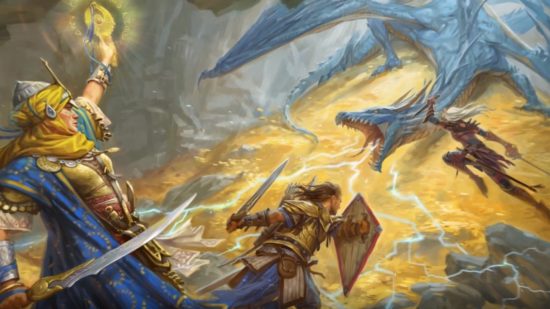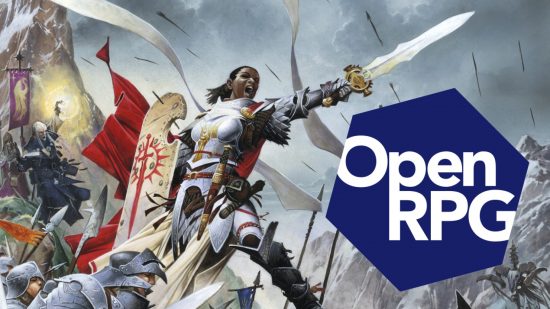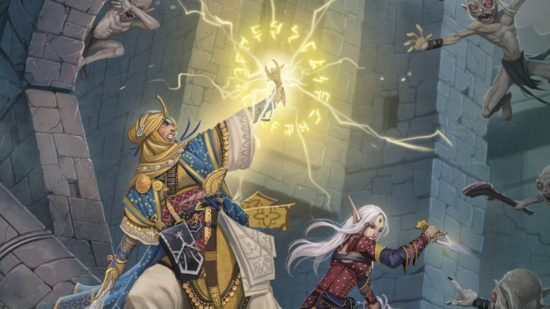“We have no interest in Wizards’ new OGL,” wrote Pathfinder publisher Paizo in a blogpost on Thursday, announcing its own open license for tabletop RPGs, which it says will keep alive the spirit of the DnD OGL.
Responding to rumours that Wizards of the Coast plans to “de-authorize” the Open Gaming License for Dungeons and Dragons and put a more restrictive version in place, Paizo yesterday revealed that it has started work on an Open RPG Creative License (ORC) that will be “open, perpetual, and irrevocable”.
This new open license will be “system agnostic”, allowing tabletop RPG creators of all stripes to provide rules reference documents which “open up their individual game systems to the world.”
Already, a bunch of publishers have agreed to be involved, including Chaosium, Green Ronin, Legendary Games, and Kobold Press, which announced it was working on its own RPG only three days ago. In a statement, Chaosium president Michael O’Brien said “Although Chaosium has never used the WotC OGL, we are very happy to be working with the rest of the industry to come up with a system-wide OGL that anyone can use.”
The D&D Open Gaming License is an agreement which allows tabletop RPG creators to release work derived from Wizards’ SRD, a pared down version of the 5e rules. This enables publishers to sell material compatible with the 5e ruleset, containing the same rules language, and DnD races, DnD classes, 5e spells, and so on – without any nasty legal ambiguities. It’s therefore understandably very dear to D&D fans, and leaked reports last week that it was changing caused uproar in the RPG community.
In Paizo’s statement, the publisher, which has many former Wizards of the Coast employees, claims that the D&D OGL was never intended to be revocable. “We were there,” it says, adding that it’s “prepared to argue that point in a court of law if need be” – though its new ORC license avoids the need for that.
To prevent the new open license from changing in the future, Paizo doesn’t plan to own the ORC, “nor will it be owned by any company that makes money publishing RPGs”. Instead, it aims to find “a non-profit with a history of open source values to own this license.”
Paizo’s blogpost on its website, which has been intermittently broken since the announcement was made, includes a form to provide feedback on draft versions of the license. It’s also created a mailing list, and is offering a 25% discount on Pathfinder products with the code ‘OpenGaming’.
Until now, Paizo’s systems Pathfinder and Starfinder have always been published under the OGL. However, in its statement, Paizo says that while it relied on the D&D OGL to quickly bring out Pathfinder First Edition, Pathfinder 2e was written “without using Wizards’ copyrighted expressions of game mechanics”. Pathfinder Second Edition was still published under the OGL, but “the reason was no longer to allow Paizo to use Wizards’ expressions, but to allow other companies to use our expressions.”
With “months worth of products” at the printers, Paizo will still be using the existing OGL v1 for a period. After it’s cleared the backlog, however, it plans to publish work without a license for a time – while the ORC is finalised – and then adding the open licence to that content once it’s done.


